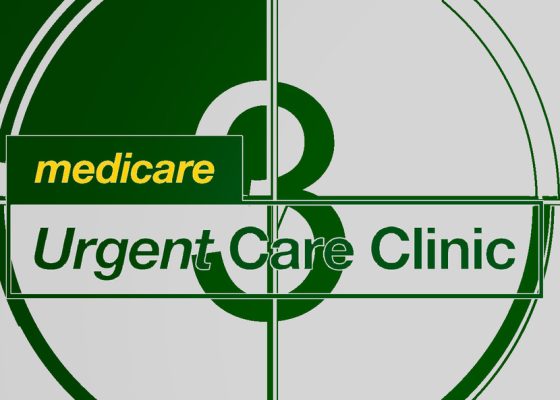Staff shortages are keeping the new urgent care clinics running at reduced opening hours, says Health Minister Mark Butler.
Health staff shortages are to blame for reduced opening hours at many of the newly minted Medicare Urgent Care Clinics around Australia, says federal health minister Mark Butler.
Mr Butler held a press conference this week to address claims that less than one in four MUCCs were open the full extended hours promised by the Albanese Government.
The delivery of 58 after-hours bulk billed GP clinics before the end of 2023 was a key election promise of the federal government. The final two opened with three days of 2023 to spare.
And while they have all technically been opened, only 14 of the facilities are operating from the promised 8am to 10pm, seven days a week. The raft of MUCCs includes 14 in NSW, 10 in Victoria, 11 in Queensland, seven in Western Australia, five in South Australia, four in Tasmania, five in the ACT, and two in the Northern Territory.
In a media release this week, Mr Butler said the MUCCs were delivering on the government’s commitment to make it easier for thousands of Australians to see a doctor or nurse for urgent care, while diverting patients from hospital emergency departments.
“The full network of 58 clinics is operating right across the country, with highly qualified doctors and nurses treating local patients and working to reduce overcrowding in emergency departments,” he said.
Since the first Medicare UCC started operations in June 2023, there have been over 130,000 visits to clinics across the country, according to Mr Butler.
Across all Medicare UCCs, the largest proportion of patients have been children, with about one in three visits from someone aged under 15 years. One in three visits have taken place on the weekend. Of visits taking place during weekdays, almost one in five have taken place at 6pm or later.
Mr Butler followed the release up with an appearance at a media conference, which was also attended by Andrew Cohen, ForHealth CEO, Dr Carolyn Roesler, ForHealth’s regional clinical director, and Michele Mackay, CEO of Adelaide PHN.
Mr Butler said staffing the MUCCs to operate at the promised hours was a challenge.
“Now, I’ve been quite open that a number of the clinics will take a little while to attract the workforce to ensure that they operate at every single hour that we’d like them to,” he said.
He said the government recognised there was “more to do” with the existing MUCCs.
“We need to continue to scale up those 58 clinics where they’re not yet able to operate every single hour [of] service that we’d like them to operate,” he said.
Mr Butler said all of the clinics were operating seven days a week.
“Now they might not be operating fully into the evening to 10pm, which was the commitment we made. But they are operating extended hours, seven days a week,” he said.
“But I want to be honest that not every one of those clinics has been able to click their fingers and employ exactly the number of nurses and doctors that they need to deliver the commitment on that full span of hours. But we’re working very closely with every single one of those clinics to do that.”
Mr Butler was questioned about claims that some people who had reported waiting hours at a MUCC were being told to go and come back or to make an appointment.
In response he said, “We will be working with all of these operators to make sure this service works in the way in which it was intended”.
“Now, that doesn’t mean at peak periods there aren’t going to be people who do need to wait longer periods,” he said.
“But we’re monitoring this very, very closely. As I said, it’s a new model of care. We’re determined to make sure it works for the community, we’re determined to back in the operators who’ve taken the brave decision to put their practices forward to embark upon a new, exciting, innovative model of care for Australia.
“But these are early days, and we’re going to make sure that some of those issues are dealt with.”
A number of the new MUCCs are operated by ForHealth, and Mr Cohen said they saw the community impact the MUCCs were having every day.
“Our clinics see typically 30 and often 50 patients every day. This is especially true in regional areas,” he said.
“And we’ve seen unprecedented demand over the recent seasonal period. Of those patients, nine out of 10 of them would highly recommend the service.”
Mr Cohen said a patient typically commenced care, after triage, in about 35 minutes on average.
“Sixty percent of the patients state that they would otherwise have gone to the ED and we are starting to see a meaningful impact to triage category four and five presentations in many of the adjacent hospitals to our clinics,” he said.
He cited Logan Hospital, where the category five presentations were down 10%. And at Ipswich hospital, category four and five presentations were down more than 25%.
“But beyond the numbers, I think it’s really the many kind of written letters of thanks that flow into the practices from patients that really tell the story of the community impact,” he said.
“Letters like one at Royal Park here received just last week from the parents of an eight-year-old girl, who came in with a serious rash and upper respiratory tract infection on Christmas Day. Within 15 minutes, this eight-year-old was triaged by the nurse on arrival. Within 34 minutes, she was seen by the doctor and 26 minutes later, she was discharged back to her holiday and back to her Christmas.
“And within that process, our team consulted with the Women’s and Children’s Hospital. They uploaded her treatment to My Health Record. And then they had a detailed discharge summary to her regular GP, for follow up. These are really meaningful changes to the community.”
A full list of operating MUCCs is available here.



